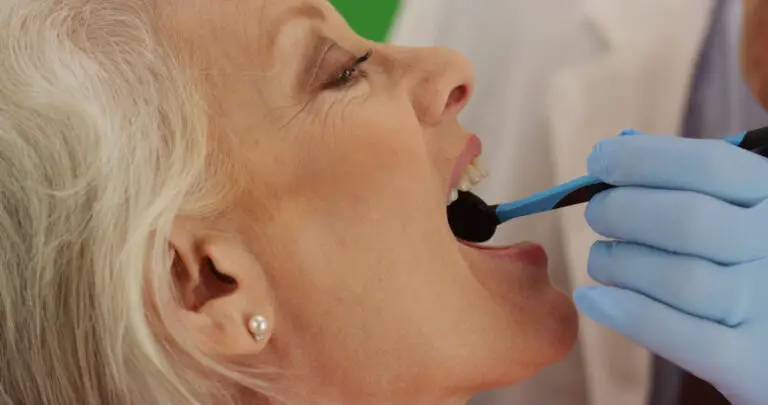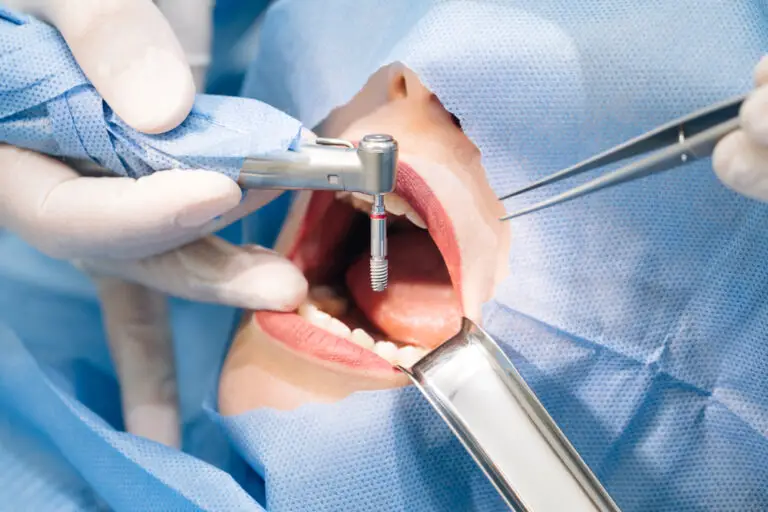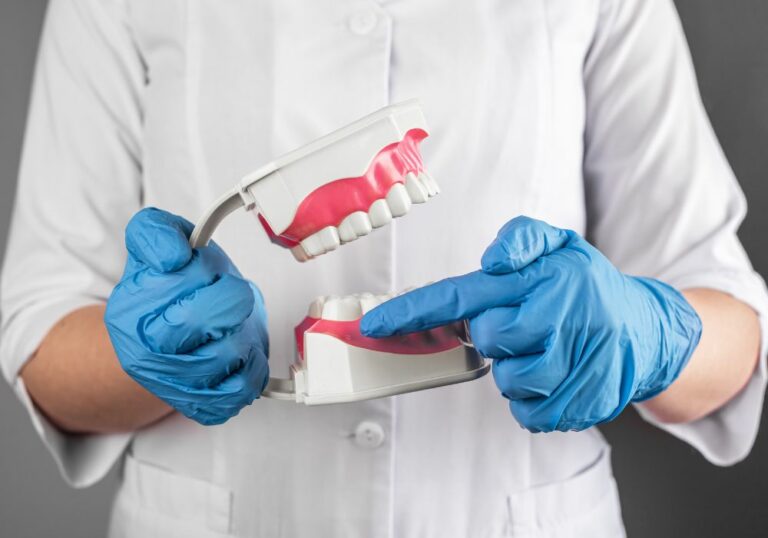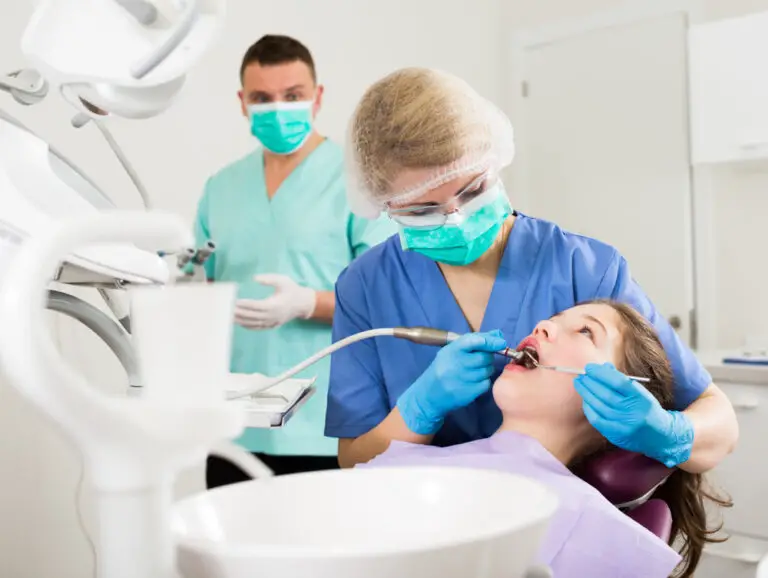Having some kind of jaw pain after dental work is normal. But, if the pain persists for days or is too discomforting to tolerate, you should not ignore it.
This is a sign of a serious underlying issue. So, it’s best to get a dentist appointment at your earliest convenience. Until then, knowing how to relieve jaw pain after dental work can work wonders.
In today’s post, we will help you with exactly that. From types of pain to remedies, here is everything to make your life a bit easier and better. Read more!
Is Your Jaw Pain Serious?
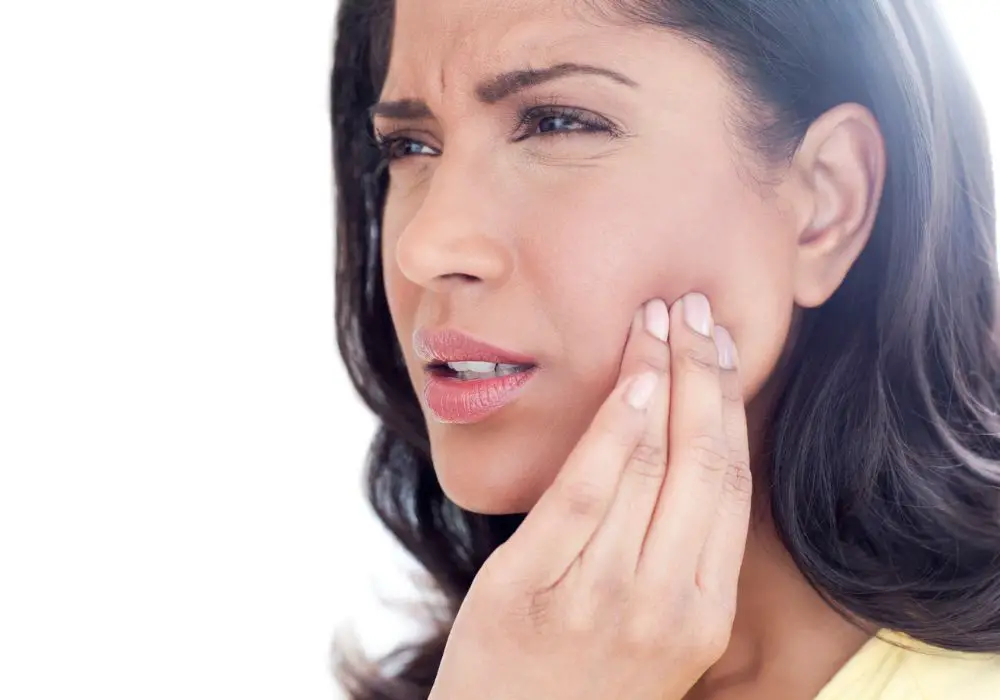
All patients experience a little discomfort, pain, and mouth tenderness after dental work. This is because your mouth has sensitive soft tissues and nerve endings. So, when the dentist uses the tools to move things around or injects anesthesia, the muscles are inflamed.
Your gums will be red and swollen. If the procedure involved keeping the mouth open for long hours (using a mouth prop), you may also experience throbbing jaw pain afterward. All of these problems should go away on their own in a couple of days.
However, if your jaw pain escalates to a point where it interferes with your daily life, don’t ignore it all. It can be a sign of a serious underlying condition and may need immediate treatment. Call your dental healthcare professional and book an emergency consultation.
Why Does Your Jaw Hurt After Dental Work?
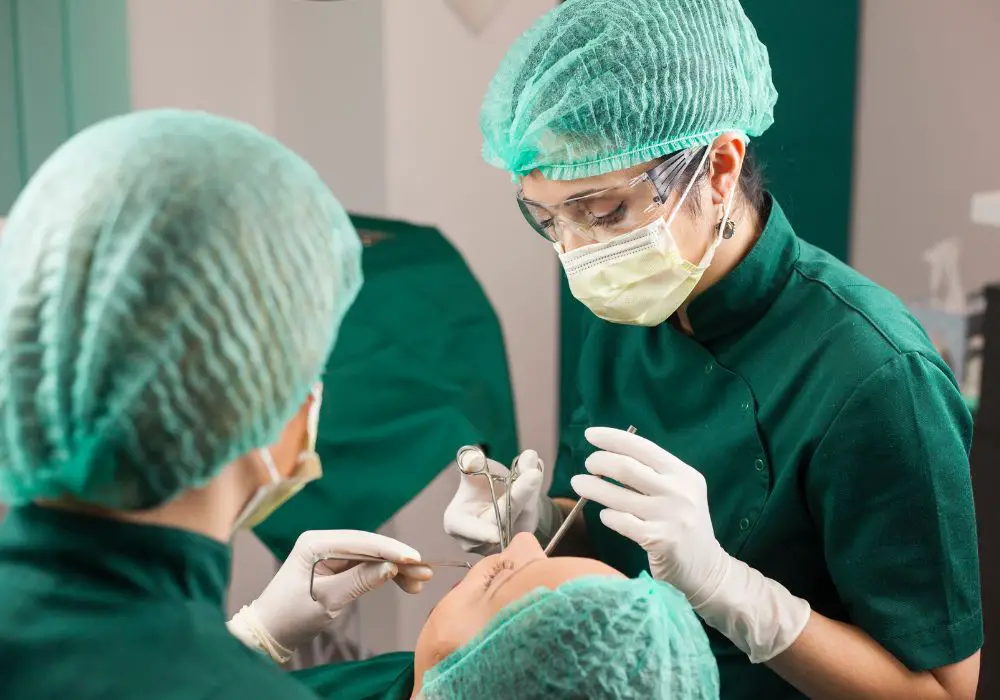
Normal jaw pain should not last for more than 2 to 3 days. If it continues for a week or more, it may be because of the following reasons:
1. Bacterial Infection
A throbbing and persistent jaw pain indicates the presence of bacteria. While this is rare, there is a particular type of bacteria (abscess) that affects weakened or injured tissues. It will cause the pus to collect in your mouth.
Some other symptoms of a bacterial infection include inflammation, tooth sensitivity, earache, and tightness in the sides of the neck. You may also feel that the food tastes foul and unpleasant.
If you don’t treat it for a week or more, the bacteria will spread throughout the mouth – causing extreme swelling and breathing difficulties. It will also lead to a fever.
2. Bite Misalignment
This type of jaw pain occurs after two dental procedures; tooth filling and crown/veneers. In tooth filling, the dentist cleans the decayed tooth and fills the cavity with a material. Sometimes, the dentist will add a crown on top of it to make the filling last longer.
You can also get a crown/veneer for aesthetic purposes. The tooth-colored cover blends in with the other teeth and makes your smile appear perfect.
In any case, if the filling or crown/veneer isn’t shaped properly, it won’t sit in naturally. It may be too big or small to align with other teeth. As a result, when you bite, extra pressure will be exerted on the particular tooth.
This will cause inflammation and irritation in the nerve endings. You will develop moderately discomforting jaw pain. But, as time passes, it will become excruciating.
3. Improper Post-Care
When a dentist advises you to do something after dental work, please follow it. Improper post-care is one of the biggest reasons behind jaw pain and complications.
For example, if you just had a root canal therapy, you shouldn’t eat hard and sugary foods. Use your unaffected side to chew soft foods. Also, use a straw to drink beverages. These practices ensure your new filling doesn’t develop an infection.
4. Nerve Damage
If your dentist isn’t experienced or careful enough, there might be some sort of damage to your nerves. This will cause mild jaw pain accompanied by tingling and numbness in the affected area.
The pain should improve in a few days. But if it’s chronic or returns after some time, the nerve damage may be serious and even permanent.
5. TMJ Pain
Temporomandibular Joints (TMJ) are present at the end of your lower jaw. They connect the lower jaw to the skull and enable its movement. When there is persistent pain and tenderness in these jaw joints, it is called a TMJ dysfunction or TMD.
People with bruxism, arthritis, and jaw injuries or trauma experience TMJ dysfunction. So, if your jaw was opened too wide or mishandled in any way, the joint ligaments may have been injured in the process – causing TMJ pain.
6. Jaw Dislocation
This is a very rare occurrence and may result from inexperience and poor handling of your jaw during the procedure. For example, if the dentist exerted too much pressure while tooth extraction, the jaw may become dislocated.
Some ways to identify jaw dislocation include unbearable pain, swelling, misalignment, and unresponsiveness.
7 Home Remedies to Relieve Jaw Pain After Dental Work

Now that we have discussed the reasons behind jaw pain after dental work. Let’s have a look at what you can do to relieve the pain until you get a dentist appointment.
1. Jaw Exercise
Jaw stiffness and tenderness can be resolved by practicing light mouth exercises. Open your mouth and hold it for 2 to 3 seconds. Close immediately afterward and let it relax. You can also stretch the lower jaw or massage to get rid of TMJ symptoms.
Check out this amazing step-by-step visual guide to pain-relieving exercises:
If your pain makes it difficult to open the mouth, use a bite block. It will help you stretch the muscles without exerting pressure on them.
2. Salt Water Rinse
Saltwater is a popular remedy for light to moderate jaw pains. The heated water helps the sore muscles and joints relax, whereas salt draws out bacteria or viruses. In most cases, the saltwater rinse will eliminate the pain.
To prepare it, take a cup of lukewarm water and put some salt in it. Mix and use the salty solution to rinse your mouth. You should also gargle, as it will work out the jaw muscles and ease the pain.
3. Ice Water
If your jaw pain is accompanied by swelling and tightness, use ice water to relieve it. You can drink chilled water or apply ice packs to the affected area. Another cheaper and quicker solution is to place an ice cube against the jaw.
But don’t chew the ice cube. The hardness will accelerate the pain and even cause an injury to the jaw.
People, who experience jaw pain after wisdom tooth extraction, should try chilled coconut water. The coconut will replenish the lost electrolytes, while the cold water will ease the inflammation.
4. Ice and Hot Water Compression
An effective way to reduce intense jaw pain immediately is to alternate between ice and hot water. The coldness will numb the pain, and the heat will increase the blood supply. So, this method will speed up dental work recovery without feeling much pain.
To do so, grab the ice pack and place it against your jaw for 20 minutes. Push it a little if the pain is extreme (also called compression). Then, remove it and let the jaw rest for a couple of minutes. Repeat the process using a heat pack.
It’s best to do this 4 to 5 times in a row. However, if you don’t have ice or heat packs, substitute them with anything warm or cold (like ice cubes and a glass of lukewarm water).
5. Clove Oil
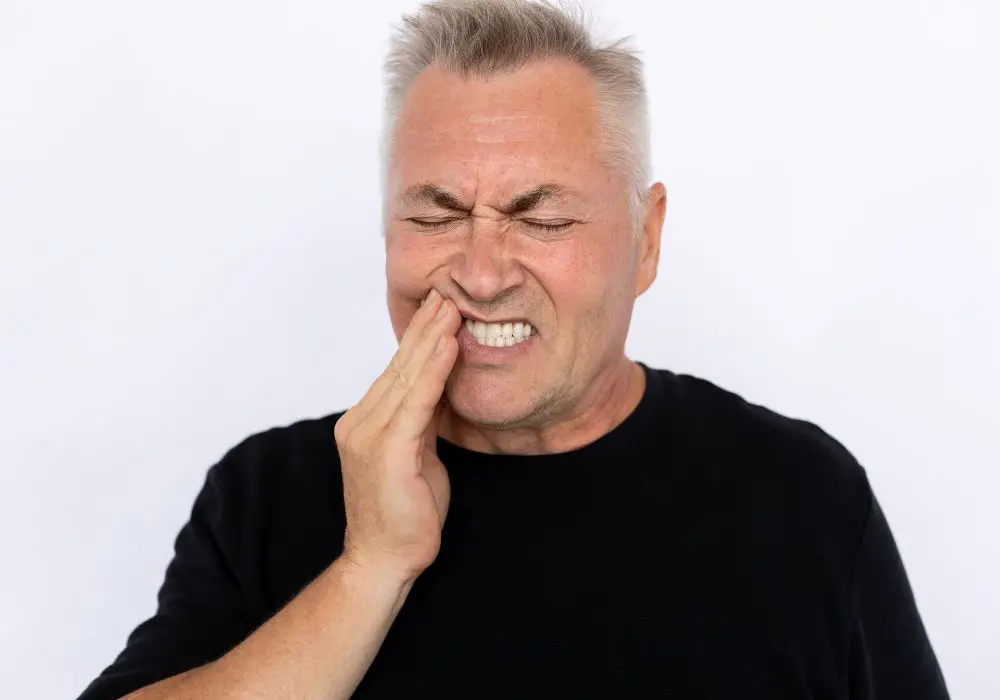
Clove oil has a chemical compound (eugenol) that acts as a natural anesthetic. It numbs the pain and offers temporary relief. Usually, it is used to treat toothache.
But you can also apply it for jaw pain and gum inflammation. The anti-inflammatory properties of eugenol will reduce the redness, irritation, and muscle tension in the mouth.
6. Turmeric
Turmeric is famous for reducing all types of inflammation. Eat a turmeric supplement or add some to your meal for relieving jaw pain. If you can’t chew anything, add 1 teaspoon of finely powdered turmeric powder to a cup of milk and drink it.
The results won’t be immediate, but you will experience a reduction in swelling and pain after a couple of hours. Some other nutritional supplements to relieve jaw pain include magnesium and omega-3 fatty acids.
7. Over-the-Counter Medications
An over-the-counter pain reliever should be your last resort. This is because you don’t know the exact reason behind the pain yet. And so, if you consume the wrong product, the situation can actually worsen.
However, if your pain is extremely unbearable and no remedy is working, try Motrin, Advil, or Ibuprofen. All of these OTC medications are safe for consumption and will give immediate relief.
Last Words
All in all, the intensity of jaw pain after dental work depends on the cause of the pain. Mild discomfort is common, but too much pain is an indication of something being seriously wrong with your jaw.
If you’re experiencing it right now, here is how to relieve jaw pain after dental work:
- Light jaw opening and stretching exercises
- Saltwater rinses and gargling
- Ice water
- Ice and heat pack compression
- Clove oil
- Turmeric, Magnesium, and Omega-3 fatty acid supplements
- Motrin, Advil, Ibuprofen, or other recommended OTC medication
You should also avoid certain things, like drinking caffeine and clenching your jaw. Instead, try the above remedies and calm yourself through meditation or yoga. Too much stress can strain the muscles and aggravate the pain. We hope you get well soon!

